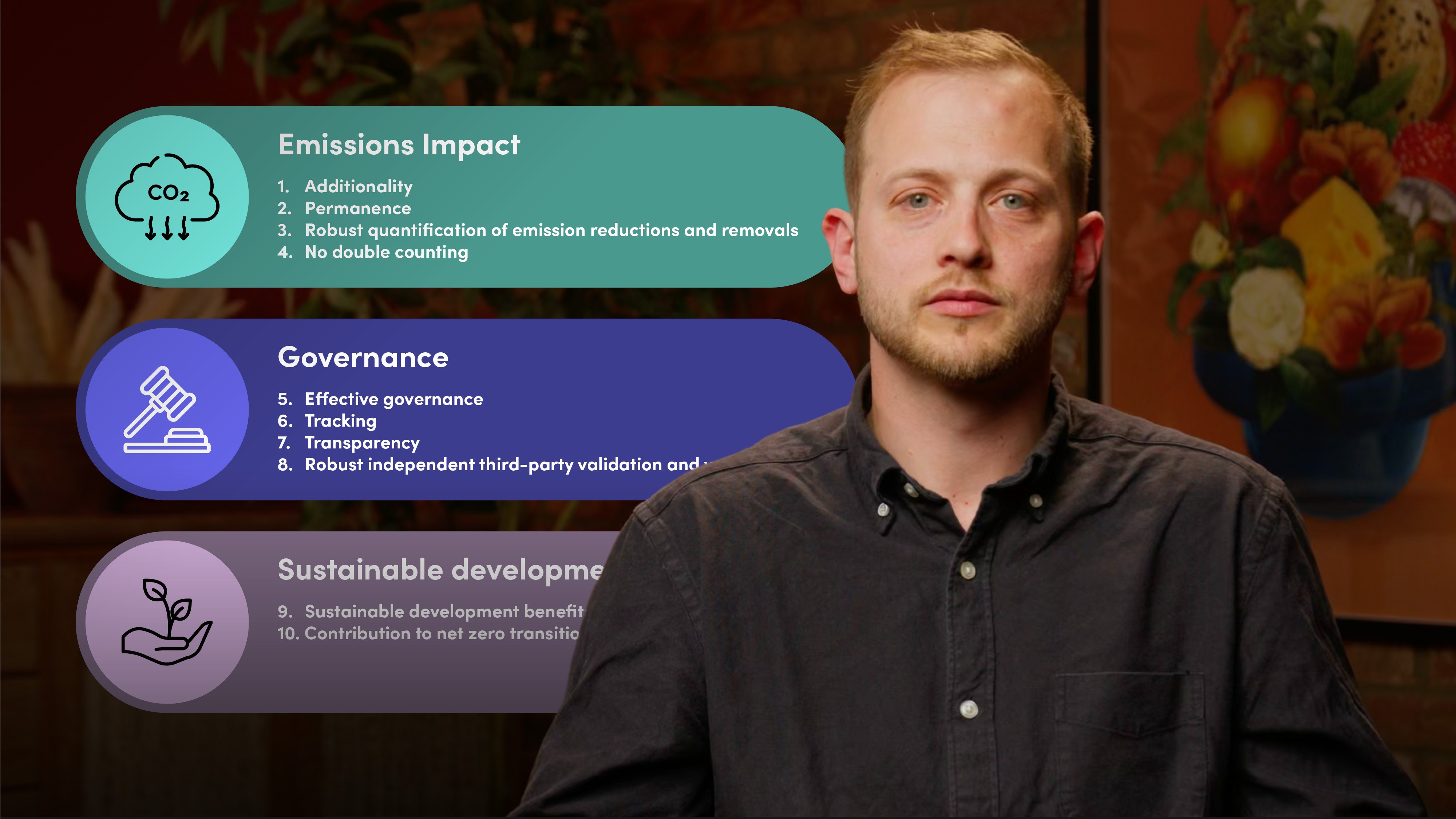What are the Core Carbon Principles (CCPs)?
The CCPs are a global benchmark for high-integrity carbon credits that meet rigorous thresholds on disclosure and sustainable development. The CCPs provide a credible means of identifying carbon credits that create real, measurable climate impacts. The CCPs are implemented through an Assessment Framework. The framework first defines which carbon-crediting programs are CCP-Eligible, then identifies CCP-Approved project categories, before finally seeing CCP-Labelled credits.
What are the 10 Core Carbon Principles?
The 10 CCPs are categorised under three key areas: governance, emission impact and sustainable development.
Governance
– Effective governance
The carbon-crediting program shall have effective program governance to ensure accountability in the way they operate.
– Tracking
The carbon-crediting program shall operate or make use of a registry to uniquely identify, record and track mitigation activities, as well as carbon credit issuance and retirement.
– Transparency
The carbon-crediting program shall provide comprehensive, transparent and publicly available information on all credited mitigation activities.
– Robust independent third-party validation and verification
The carbon-crediting program shall have requirements for robust, independent validation and verification of project activities by a third party.
Emissions impact
– Additionality
The greenhouse gas (GHG) emission reductions or removals from the mitigation activity shall be additional. This means that they would not have occurred in the absence of the incentive or support created by carbon credit revenues.
– Permanence
The GHG emission reductions or removals from the mitigation activity shall be permanent or, where there is a risk of reversal, there shall be measures in place to address those risks and compensate reversals, such as with activity buffer zones.
– Robust quantification of emission reductions and removals
The GHG emission reductions or removals from the mitigation activity shall be robustly quantified, based on conservative approaches and scientific methods.
– No double counting
The GHG emission reductions or removals from the mitigation activity shall only be counted once towards achieving mitigation targets or goals.
Sustainable development
– Sustainable development benefits and safeguards
The carbon-crediting program shall have clear guidance, tools and compliance procedures to ensure mitigation activities conform with social and environmental safeguards, and deliver positive sustainable development impacts.
– Contribution toward net zero transition
The mitigation activity shall avoid locking in levels of greenhouse gas emissions, technologies or carbon-intensive practices that are incompatible with the objective of achieving net zero emissions by mid-century.





